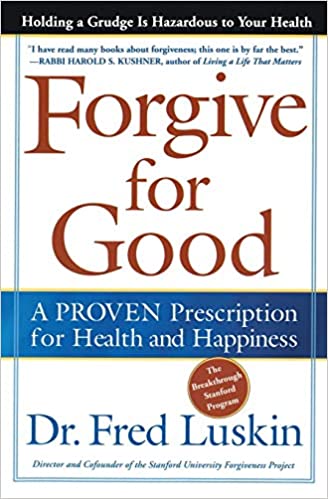Listen to this episode of the Focus with Marlene Podcast
Get caught up with all episodes in the “Threads of Life” series
“Of the seven deadly sins, anger is possibly the most fun.
Top lick your wounds, to smack your lips over grievances long past, to roll over your tongue the prospect of bitter confrontations still to come, to savor to the last toothsome morsel both the pain you are given and the pain you are giving back – in more ways it is a feast fit for a king.
The chief drawback is what you are wolfing down is yourself.
The skeleton at the feast is you.”
-Frederick Buechner, Wishful Thinking: A Theological ABC
Jesus said, “Forgive seventy times seven” (Matthew 18:22). We take it as a moral imperative.
But it isn’t just Jesus who tells us how important forgiveness is; science confirms it as well. In fact, not to forgive is putting a slow death sentence on ourselves,as the theologian Frederick Buechner so aptly describes.
Most of us deal with the sins and transgressions of others in the moment. We get mad, pull away, and then make up and go on. When we are the transgressors, we do the same. With minor goofs and slip-ups, we feel bad in the moment, apologize, and then continue with life.
Grievance stories
 When we personalize indiscretions or offenses of others, however, we are setting ourselves up for the creation of a “grievance story” as detailed by Dr. Fred Luskin, in his book, Forgive for Good.
When we personalize indiscretions or offenses of others, however, we are setting ourselves up for the creation of a “grievance story” as detailed by Dr. Fred Luskin, in his book, Forgive for Good.
When we hang on to resentment, it becomes more toxic over time.
The suggestions offered by Dr. Luskin can help us better understand how and why we are so quickly offended and what we can do to change such a trajectory.
7 ways to make forgiveness a gift, rather than an obligation
1. Don’t make “unenforceable” rules.
Unenforceable rules are expectations and assumptions that everyone must follow, or we will be personally insulted and offended. Associated with such rules are the words, should, must, have to and ought.
When you hear yourself saying these words, ask what you are demanding from either yourself or another. How are you eliminating personal choice?
2. Own your feelings.
We blame others for how we feel. People can’t make us feel a certain way unless we allow it. We can choose other ways to respond that doesn’t involve escalating anger, ill will or hatred.
3. An injury does not create a “grievance story” – we do.
We can reframe our situations, become less critical and balance troubled times with humor.
4. Forgiveness and reconciliation are not the same thing.
Forgiving prepares the way for reconciliation; it doesn’t automatically say it will happen. Forgiveness is letting go of trying to get retribution. Forgiveness of self says, I can admit when I am wrong, apologize and ask for forgiveness and stop beating myself up.
5. Forgiveness does not mean condoning unkindness, inconsiderate or selfish behavior or excusing bad behavior.
It does not deny or minimize the hurt, pain or injury done to us. It just refuses to make it into an ongoing resentment story that becomes toxic over time. We are the ones hurt by not forgiving.
6. Coming to terms with unpleasantness in life helps us understand we are not perfect or flawless.
We will make mistakes and need grace and forgiveness. Although people will hurt us, they are often unaware that they have offended us.
7. Forgiveness is a choice.
We make the conscious decision to let go of the hurts and wrongs. Forgiveness requires that we first define our grievance. When we can articulate the details of the hurtful event, we will know exactly what we are forgiving.
Acknowledge, accept your feelings, and then make that conscious choice to forgive and let go. Forgiving helps us from getting hurt in the future.
Forgiveness allows me to let go of the pain and experience peace. I choose to forgive. How about you?
Read Marlene’s story in It’s A God Thing: Stories to Help You Experience the Heart of God, by Freeman-Smith. Fifty real-life stories that demonstrate the real grace that can only come from a kind and loving Heavenly Father. Available on Amazon.com.


